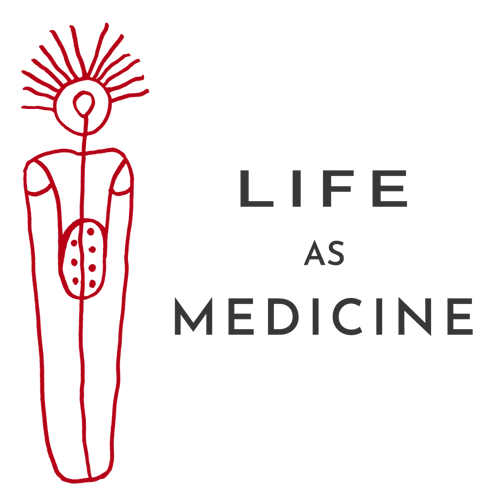About Us
Our Philosophy
We aspire towards more holistic, natural, ecological, and empowering ways of healing.
Radical transformative energies are interwoven throughout our work to name, embrace, and revitalize once readily available forms of ancestral resiliency.
Recognizing the interconnectedness of all life forms, we ground our work in broader contexts of social change while working and playing to restore our interdependence with Mother Earth.
All LIFE as Medicine philosophies, strategies, and applications are shared within the Sharing Circle and Medicine Wheel frameworks.
Our Purpose
We aim to promote transformative Healing Arts by, for, and with Indigenous Peoples and our Allies through education, social advocacy, and relational creative experiences.
We are especially committed to reaching underserved Indigenous, Black, POC, and 2S/LGBTQIA+ communities who are seeking more sustainable and culturally responsive ways to support community members.
Currently, we are diligently working towards accreditation to offer formalized, credentialed training in Indigenous Healing Arts at local, national, and global levels.
Meet Our Team
Within our Collaborative Circle, you will find a diverse group of qualified and experienced individuals dedicated to Indigenous healing practices, expressive arts, and community empowerment. From artists and social workers to therapists and educators, our team includes Grandmothers, Elders, and activists united by a shared commitment to honour traditional knowledge and land-based practices. Together, we’re paving the way for future generations by bringing the transformative power of Healing Arts to our communities.
